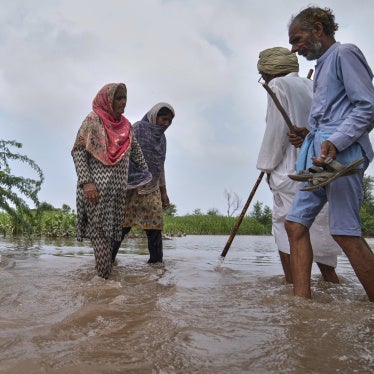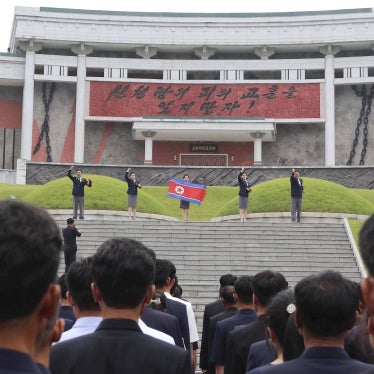(New York)—Human Rights Watch called on U.S. Secretary of State Madeleine Albright to put human rights high on the agenda in her discussions with officials in Vietnam this week.
"Now that the U.S. and Vietnam have an agreement in principle on trade, Albright can point out that openness, transparency, and independent courts are good for business," said Sidney Jones, Asia director of Human Rights Watch. "But she should also get down to specifics in pressing for human rights improvements."
Human Rights Watch said Albright should welcome recent amnesties of political prisoners but also raise concerns about ongoing restrictions on their freedom. "The new strategy against dissidents appears to be to isolate them instead of imprisoning them, in order to avoid international condemnation, " said Jones. "In this way the Vietnamese government has been able to continue to silence dissent while getting credit for prisoner releases."
Albright should ensure that a senior member of her delegation meet two men who embody the struggle for human rights in Vietnam. Dr. Nguyen Dan Que spent eighteen years in prison after calling for democratic reforms; he was released in September. Thich Quang Do, a monk from the banned Unified Buddhist Church (UBC), was placed in internal exile for ten years and imprisoned for three, in part for rejecting state control of Buddhist institutions. He was released last August 31. Both men remain under strict surveillance.
Albright should also urge:
- the release of critics Hai Si Phu, a biologist and writer; poet Bui Minh Quoc, writer Tieu Dao Bao Cu, and war veteran Naguyen Ho. All have been detained under house arrest since August-September 1997.
- the lifting of restrictions on released prisoners, not only Dr. Que and Thich Quang Do but also geologist Nguyen Thanh Giang, who was released from detention in May 1999 but is currently banned from traveling outside Hanoi without permission. Giang openly advocated human rights and multiparty democracy.
- the repeal of Administrative Detention Directive 31/CP, which authorizes villlage-level People's Committee and Public Security officials to detain without trial, for between six months and two years, individuals considered to have violated national security laws
- protection of religious freedom and implementation of the recommendations made by Abdelfattah Amor, the U.N. Special Rapporteur on Religious Intolerance, in a December 1998 report.
- access by humanitarian organizations to Vietnamese prisons and implementation of recommendations made to the Vietnamese government in 1994 by the U.N. Working Group on Arbitrary Detention. The Working Group called for better compliance with the U.N.'s Standard Minimum Rules for the Treatment of Prisoners, greater transparency in the government's administration of detention facilities, and provision of immediate and adequate food and medical treatment to all detainees.
- publication of a list of the more than 7,000 prisoners released in amnesties in 1998 and 1999 so that their relatives abroad can know with certainty whether their family members are still detained.
- the easing of restrictions on press freedom. A new press law passed in May requires journalists to pay compensation or publish retractions to persons hurt by their reports, even if the information is conrrect. An earlier directive from May 1997 requires Vietnamese journalists to obtain approval from the Ministry of Culture and Information before passing any information on to foreign reporters.
- tolerance of peaceful criticism of government policies and institutions. Human Rights Watch has received reports that other key dissidents and religious leaders- not just those released in amnesties last year- live under surveillance by local authorities, with their publishing rights denied, friends and neighbors discouraged from meeting them, and communication with the outside world hampered by interception of mail and blockage of telephone lines. Of particular concern are Father Chan Tin, Vu Huy Cuong, Hoang Tien, Tran Do, and Hoang Minh Chinh.








